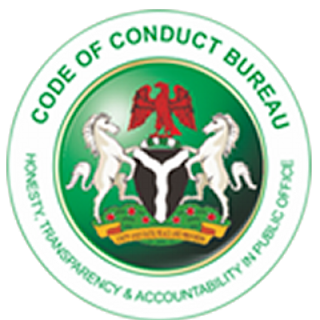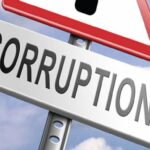The Head of the Legal Department of the Code of Conduct Bureau (CCB), Barrister Usman Muhammed, has said that the bureau would have done better than the Independent Corrupt Practices and other Related Offences Commission (ICPC) and the Economic and Financial Crimes Commission (EFCC), if it was adequately staffed and funded.
He spoke on Tuesday in Abuja at a two-day anti-money laundering conference themed: “Impact of anti-money laundering and illicit financial flows: Legislative, Policy and Institutional Gaps to investigate prosecute and convict for AML (anti-money laundering)/ IFF (illicit financial flows) charges” organised by the Civil Society Legislative Advocacy Centre (CISLAC).
According to him, the bureau is the first anti-corruption agency established in the country and also has detail information that can be used to prosecute and prevent money laundering and other forms of corruption in the country.
“The bureau has the files of assets of appointed and elected public office holders, which were voluntarily declared by them. Unfortunately, we are underfunded and understaffed. It is not clear why the government would establish other anti-corruption agencies when it has the CCB to effectively tackle corruption, with the information available,” Muhammed said.
The Programme Manager, Democratic Governance, CISLAC, Mr. Okeke Anya, in his keynote listed absence of clear IFF policy and weak implementation of other policies, absence of specific legislation on IFF, absence of financial transparency, problems of tax incentives and evasion and increased financial crimes among others as the reasons why money laundering and other financial corruptions are difficult to control in the country.
According to him, the anti-money laundering efforts are global with the United Nations (UN) Convention for the Suppression of the Financing of Terrorism, the Egmont Group, which is connected to several international networks of Financial Intelligence Units (FIUs) and the Financial Action Task Force (FATF) being among the instruments being deployed to tackle the menace.
He however observed that Nigeria began a series of legislations to fight money laundering following the signing and ratification of the convention for the adoption of a convention against illicit traffic in narcotic drugs and psychotropic substances.
“Fighting corruption ranks topmost in this administration’s policy and governance thrust.
“Nigeria’s GDP per capita is estimated at $2,827, however corruption per capita is put at $1000 per capita in 2014 and will go up to nearly $2000 per capita in 2030 if drastic measures to curb it are not undertaken,” Anya said.
The Project Manager, CISLAC, Gloria Chinyere Okwu, said the two-year project, which is being funded by the European Union through Transparency International and co-funded by Global Affairs Canada IMPACT Project, commenced in 2017 will end in 2019.
She said that apart from Nigeria, the project is also being implemented by six other ECOWAS countries of Ghana, Senegal, Liberia, Cote d’ voire, Sierra Leone and Guinea to among others increase public awareness for and political commitment to anti-money laundering and anti-corruption mechanisms which effectively prevent, detect, report and sanction the laundering of corrupt and criminal proceeds in ECOWAS countries.

 Join Daily Trust WhatsApp Community For Quick Access To News and Happenings Around You.
Join Daily Trust WhatsApp Community For Quick Access To News and Happenings Around You.

